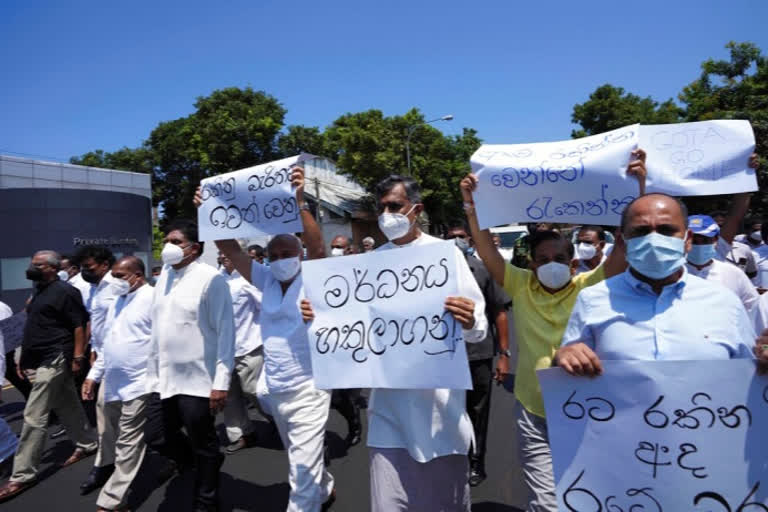Colombo: Opposition lawmakers in Sri Lanka on Sunday marched in the capital, Colombo, defying the president's move to impose a nationwide curfew and state of emergency after protests blaming the government for an economic crisis swelled. Internet users were also unable to access Facebook, Twitter, YouTube, WhatsApp and other social media platforms on Sunday. They had been used to organize protests calling for President Gotabaya Rajapaksa to resign, saying he is responsible for the country's deepening economic woes.
Netblocks, a global internet monitor, confirmed that network data collected from over 100 vantage points across Sri Lanka showed the restrictions coming into effect across multiple providers from midnight. Sri Lanka is under a nationwide curfew from Saturday night until Monday morning after Rajapaksa assumed emergency powers at midnight Friday. More protests were being planned throughout the country on Sunday as anger over shortages of essential foods, fuel and long power cuts boiled over.
The emergency declaration by Rajapaksa gives him wide powers to preserve public order, suppress mutiny, riot or civil disturbances or for the maintenance of essential supplies. Under the decree, the president can authorize detentions, seizure of property and search of premises. He can also change or suspend any law except the constitution. The lawmakers marched toward Colombo's main square, shouting slogans and carrying placards that read "Stop Suppression" and "Gota go home." Gota is a shortened version of the president's first name. Armed soldiers and police officers set up barricades on the road leading to the square, which was built to commemorate the country's independence from Britain in 1948.
Also read:Amid curfew, Sri Lanka imposes nationwide social media blackout
